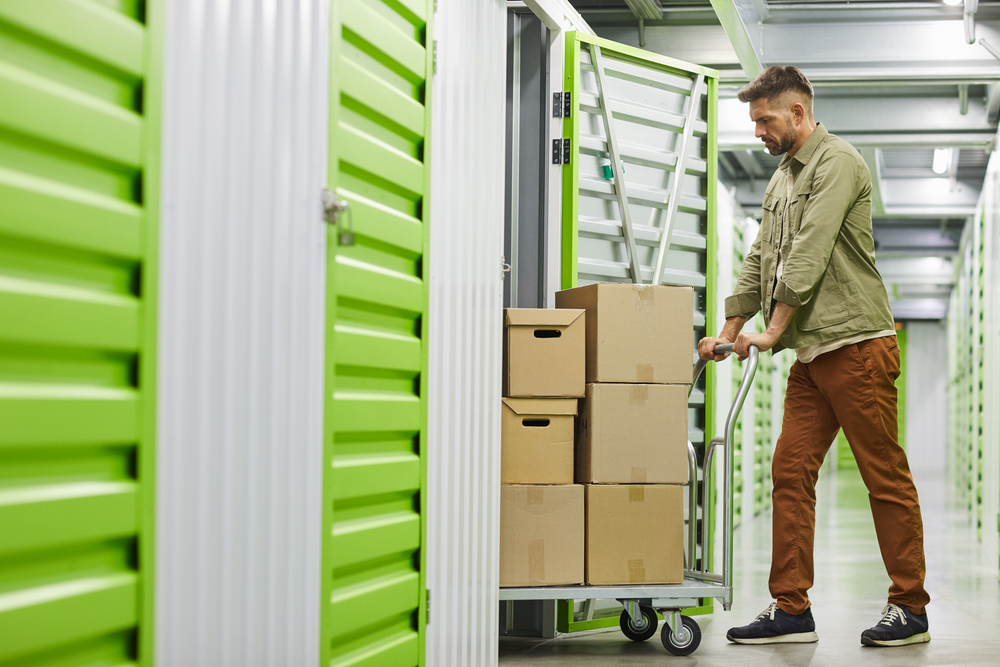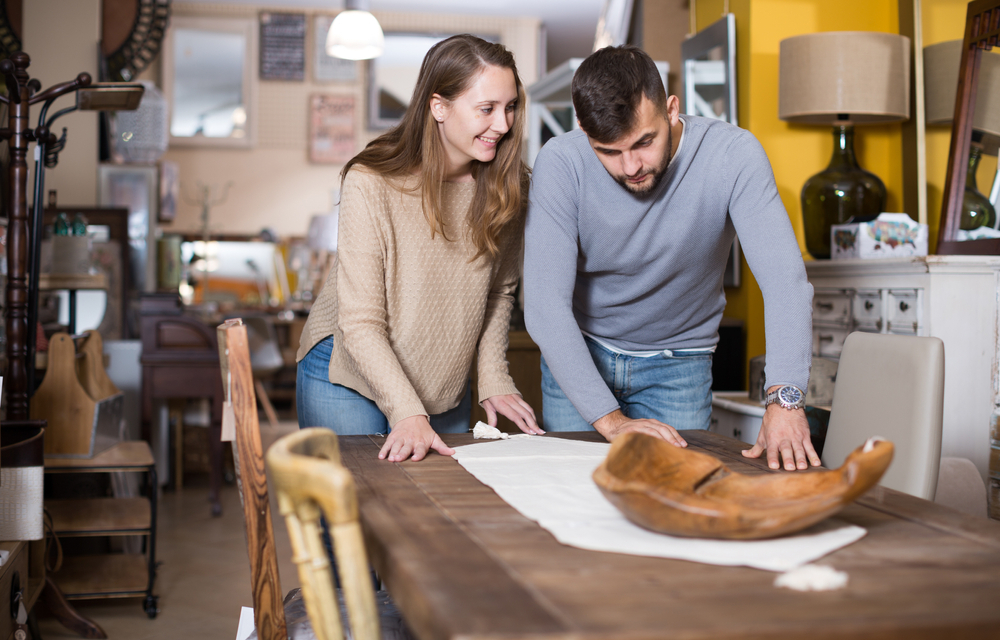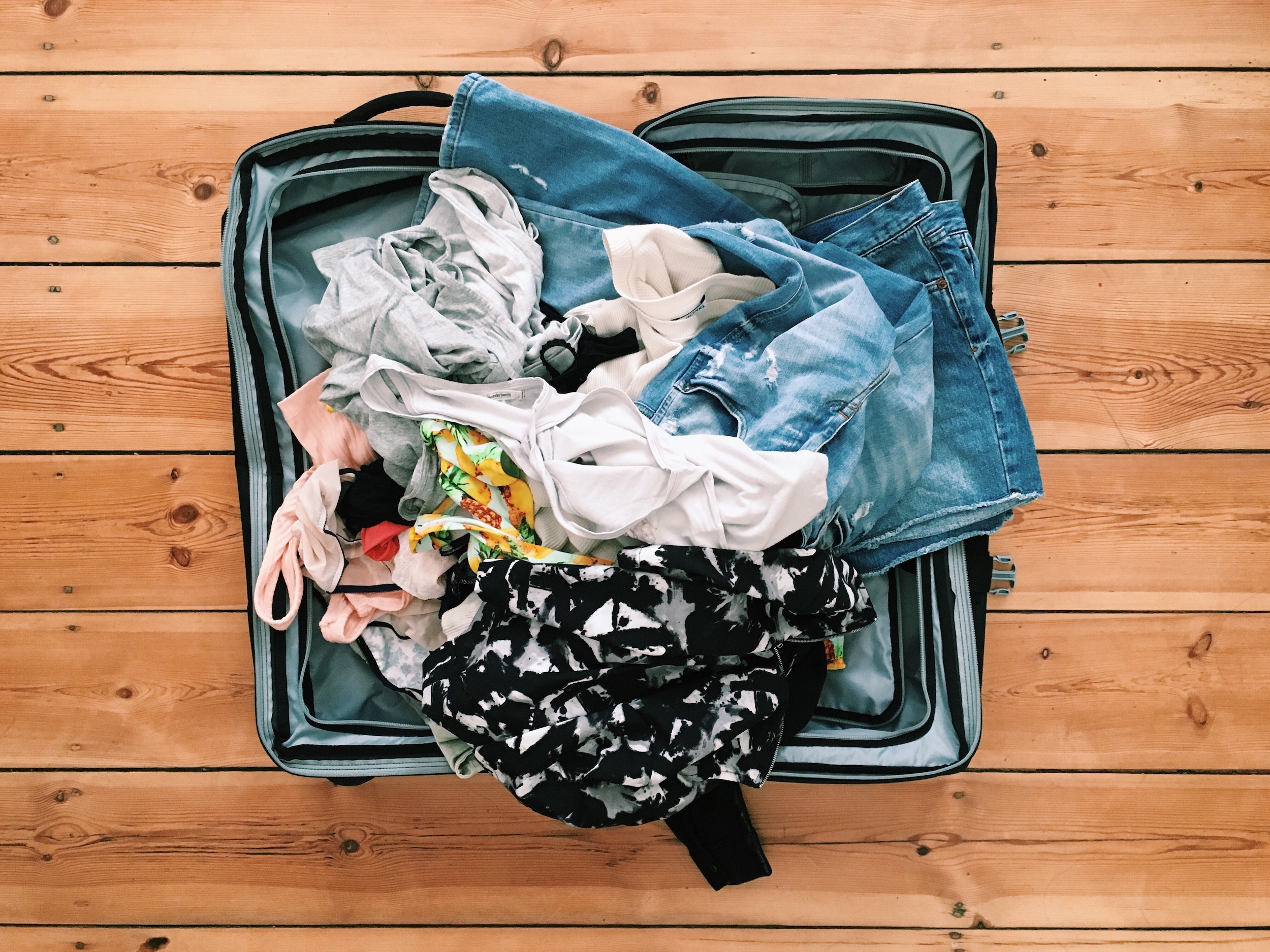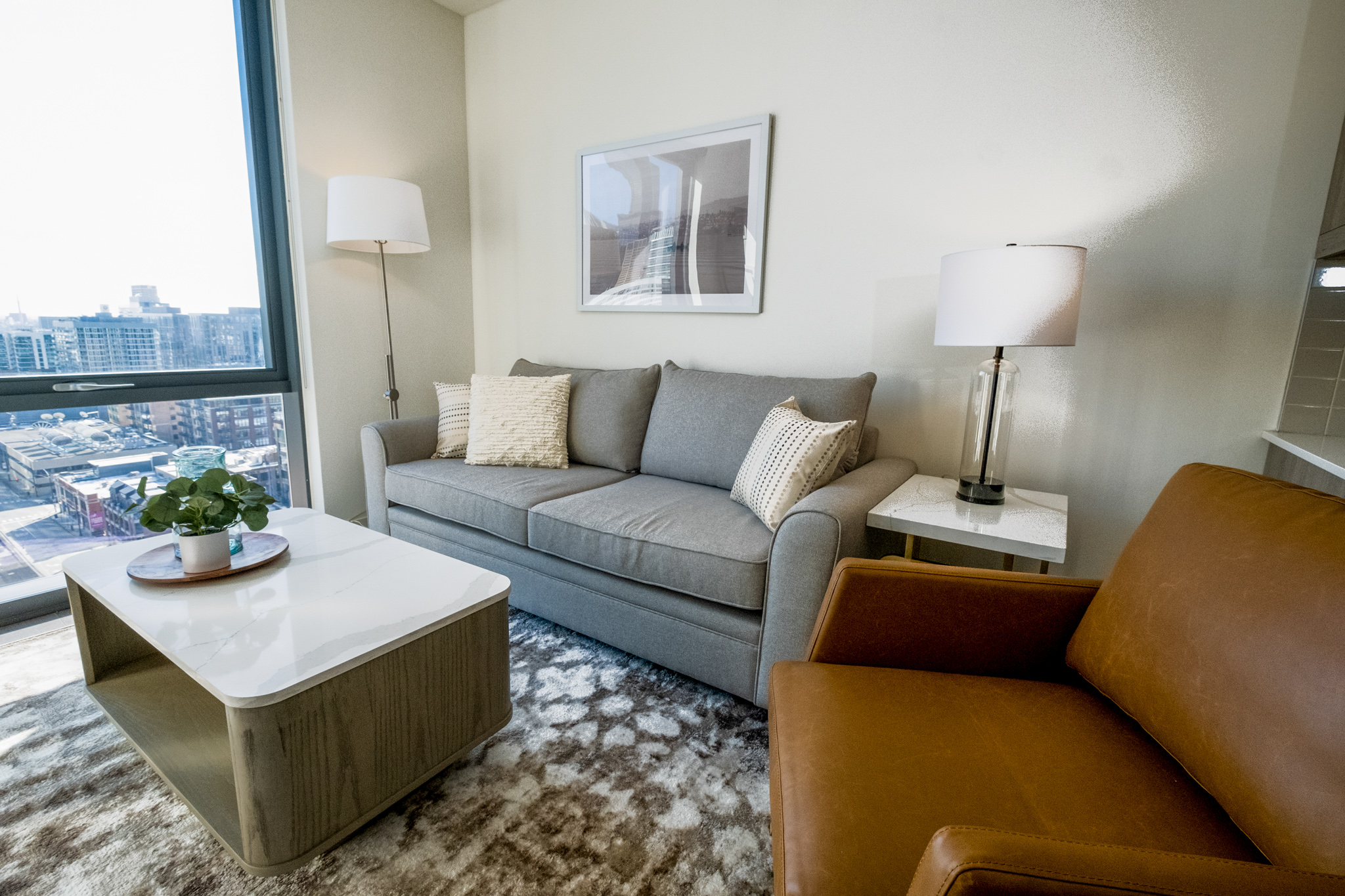
Tips From a Digital Nomad: Deciding What to Pack, Ditch, and Store Before the Big Move
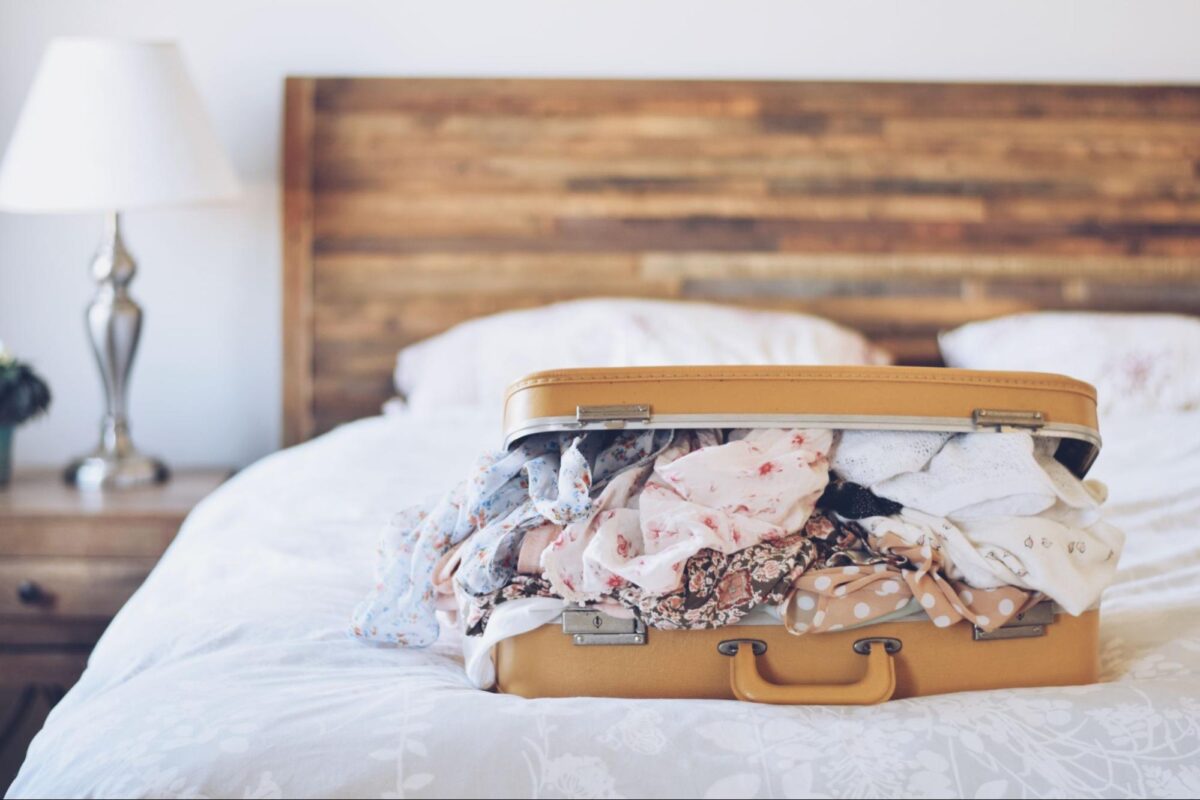
When I embarked on my nomadic journey, one of the biggest realizations I had was how much stuff I have. Stuff really accumulates when you stay in one place for too long! If you want to pursue a nomadic lifestyle, you’ll first have to figure out what you want to do with all of your things, starting with deciding what it is you truly need, what can stay behind in storage, and what should be donated or thrown away.
Here’s my advice for deciding what to keep and how to thoughtfully get rid of or store your other belongings:
Figure out whether you’re traveling short-term vs. long-term
The amazing thing about choosing a nomadic lifestyle is that there’s no cookie-cutter version—it can look any way that you want it to. When deciding what to pack, the duration of your journey will be a huge factor.
Whether you travel somewhere short-term or long-term depends on what you want out of the experience. Maybe you just want to go on a month-long vacation with a friend, experience the mountains during the summer, or just be at the beach in the winter. Or, maybe you and your partner are able to work remotely and it feels like the perfect time to go on that year-long cross-country trip you’ve always dreamed about doing.
There are endless opportunities for both short-term and long-term digital nomads.
Get rid of it, thoughtfully
This is something I recommend for both short-term and long-term nomads: If you question it, get rid of it! Before you even begin thinking about how to store your belongings while you’re gone, you need to go through what you already have.
This took me a few tries before I really understood what I actually needed. I had to go through my closet two to three times, make a large pile of items to ditch, and do it all over again. The first thing I did was sell my nicer items through places like Plato’s Closet, Facebook Marketplace, and Poshmark. This makes for some nice extra side cash for when you’re on the road!
One thing I learned from this experience, having done it a few times now, is that I prefer to take my unused items to a local charity, church drive, or even lower-income schools instead of just Goodwill. In one specific instance, I shared with my coworkers that I was getting rid of clothes and someone had a great family in mind that would truly be grateful—sometimes word of mouth is the greatest tool!
Modes of transportation matter
First things first, are you taking a car? This question matters. If you’re flying to your destination(s), you are a lot more limited in what you’re able to take with you. More than that, who wants to travel with multiple checked bags? If you’re driving, there is definitely more flexibility in your decision-making for getting rid of things.
That being said, there is no right or wrong answer as to how you’re traveling. For example, if you’re traveling to New York City, I would not recommend traveling by car. Now, if you’re traveling to Denver, I would likely recommend a car—especially if you’re there for mountain activities and sports.
Different scenarios call for different modes of transportation and storage needs. Personally, I decided I wanted to drive to most of my destinations. For me, that meant that I was going to get rid of all of my furniture, big items, and most of my clothes.
Short-term: I recommend storing
With these shorter adventures, the most ideal situation is being able to keep your things at your existing home or apartment. If you do not have an existing home or apartment, there are other storage options! Personally, I would exhaust all other options before resorting to storage units. The biggest tip I will have for nomads would be to save money wherever you can. If you have some cheaper, already used furniture that you’re not attached to, it might be a nice time to sell to give you some extra cash during your travel adventures.
A little-to-no-cost storage option would be to ask family and friends to store your items, especially if you’re only going to be gone for a short period of time. Most people with extra basement space won’t mind housing a few extra items for a couple of months. It never hurts to ask and offer to throw a few dollars their way. Ask your friends if they know anyone that’s moving that needs temporary furniture—sometimes this is a win-win for people who want to save some money before investing in new furniture as well.
If you do not have any friends or family with extra storage space, storage units can be as low as $100/month. Sometimes these storage units give you a deal on the first month as well—some smaller units offer as low as $20 to start depending on the size of the unit. This is something I would recommend if you have nice, quality furniture or big items that you don’t want to travel with. Especially if you’re only gone for a short period of time, it may not be worth selling furniture if you’re going to return in a few months.
Long-term: I recommend selling
With longer adventures, this is the time to declutter. Whichever mode of transportation you choose, this will take a bit of effort on your end. Get to thinking about what you want to sell early. Posting things online to sell can take longer than expected, especially if you decide to use a platform like Facebook Marketplace, a personal social media platform, or even Craigslist. Many people may strike up interest and bail at the last minute to purchase something.
Here are three tips I would give for selling furniture:
- Be strategic when you post certain items: For example, if you’re selling your mattress, it might be smart to wait closer to your departure date so you don’t need to sleep on the floor for a month. Out of all of my furniture items, my mattress sold the quickest.
- Post for a higher price: More often than not, people will negotiate. Think of a price you’d be happy with for an item, increase it by 10% to 20%, and post that price instead.
- Don’t expect too much out of selling your furniture online: Sadly, it’s hard to make a lot of money back on used furniture—this definitely depends on the condition it’s in. If you have furniture or big items that you definitely do not want to part with, something that I did was allow a friend to borrow a few of my bigger items (like my TV) while I am gone. Planning and utilizing your resources is important if you’re taking on a long-term adventure!
Start your digital nomad journey with Landing
When deciding what to pack and what to get rid of ahead of your digital nomad adventure, be sure to check out Landing, which offers fully furnished apartments complete with all the amenities you need to start living life in your new city. With toiletries, kitchenware, and linens all provided, you’ll have plenty of space in your suitcase for the things you want to bring with you—and then some.
Browse Landing’s network of fully furnished apartments today!

